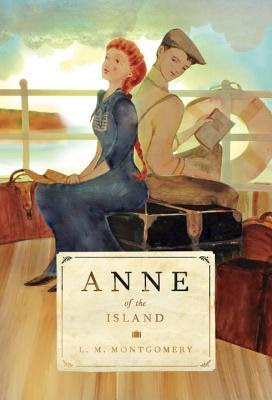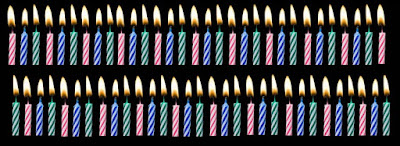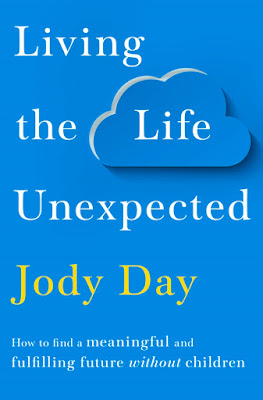Walter Bagehot, an English economist and essayist, famously wrote in 1867, "Above all things our royalty is to be reverenced, and if you begin to poke about it you cannot reverence it…Its mystery is its life. We must not let daylight in upon the magic."
I found myself remembering that quote and wondering what Bagehot would think of our modern social media/tabloid press world, and of "Spare," the now-infamous best-selling tell-all memoir by Prince Harry, Duke of Sussex, the "spare" to his older brother Prince William's "heir" to the British throne. (The "frozen todger" story in particular...!!)
(When I looked up that quote, I found another by Bagehot that I also pondered as I read this book: "The worst families are those in which the members never really speak their minds to one another; they maintain an atmosphere of unreality, and everyone always lives in an atmosphere of suppressed ill-feeling." Hmmm...)
There have been other memoirs written by other British royals and ex-royals, or written about them with their co-operation. (Harry's parents, for example -- Diana with Andrew Morton and Charles with Jonathan Dimbleby. Sarah, the Duchess of York. The late King Edward VIII, Duke of Windsor, and his wife, Wallis, Duchess of Windsor.) But there's never been anything quite like "Spare" -- and part of why I was curious to read it was that unique, fly on the wall, witness to history, insider perspective into royal life. What's it really like to be a member of that family? Harry delivers.
The book is divided into three sections. Part One ("Out of the Night That Covers Me") begins with the tragic death of Harry's mother, Diana, Princess of Wales, in August 1997, when Harry was 12, the aftermath/immediate fallout, and his teenaged/school years. Part 2 ("Bloody, but Unbowed") details his time in the military, including two tours of duty in Afghanistan, and his subsequent struggles with PTSD, anxiety and panic attacks, and the question of what to do next with his life. Part 3 ("Captain of My Soul") describes how he met and married the American actress Meghan Markle, and their decision to retreat from royal life. (The section names all come from the poem "Invictus" by William Ernest Henley -- which, of course, is also the name of the international sports event Harry founded in 2014 for wounded, injured and sick service men and women, both serving and veterans. "Invictus" means "unconquered" or "undefeated.")
I've been asked by many people (often, interestingly, Americans!) what I think about Harry & Meghan. I am of two minds on this subject. As a 60-something Canadian with some United Kingdom roots and an interest in history and politics, I grew up with a certain respect (if not Bagehot's "reverence") for the institution of the monarchy and its place in our (national/world) history and culture -- and certainly for the Queen, who was Queen for my entire life up until her death last September. I've often said, no matter what you think of monarchy as an institution, it's undeniable that she did her job -- a job she never wanted nor expected to have -- exceedingly well, for more than 70 (!) years.
During my lifetime, increasing amounts of daylight began to be let in on the "magic" of the monarchy, accelerating in the years after Prince Charles married Lady Diana Spencer, Harry's mother (who was the same age as me). I watched their wedding, followed by the arrivals of William and then Harry. I watched them both grow up and walk behind their mother's coffin, when Harry was just 12 years old. Who didn't want to reach through the TV screen and give him and his brother a big hug?? I got up at the crack of dawn to watch his wedding to Meghan (who was living and working here in Toronto when they started dating). There was so much potential in this partnership to do good on behalf of the monarchy and reinvigorate the institution for a younger, more diverse generation -- and I was sad when they left England and royal life behind. Even before reading this book, I had no doubt they had some legitimate concerns/complaints about royal life, about racism and security issues, about the press/paparazzi, etc. (Where public institutions/governments are concerned, daylight/sunshine can be a good disinfectant.) I appreciate Harry's frankness (he can be direct and unvarnished in a way that his brother William, as heir to the throne, cannot) and his understandable desire to tell his story, in his way.
But I also think there's such a thing as TMI and overkill and overexposure. There's a disconnect between the Sussexes' stated loathing for the press and desire for privacy, and the way they have deliberately generated even more headlines by continuing to talk (and talk... and talk... and drop bombshells...!), in high-profile interviews with people like Oprah and Anderson Cooper, in a SIX HOUR (! -- really??) documentary series for Netflix -- and, of course, in this explosive tell-all memoir. There are some indications that whatever public sympathy existed for them may be starting to wane.
Patti Davis (Ronald & Nancy Reagan's daughter) recently wrote an op-ed in the New York Times titled "Prince Harry and the Value of Silence." It's worth a read. Years ago, Davis wrote a tell-all memoir that caused deep hurt to her parents. Before her father succumbed to Alzheimer's disease, she apologized to him for writing it. She says:
I wanted to tell the truth, I wanted to set the record straight. Naïvely, I thought if I put my own feelings and my own truth out there for the world to read, my family might also come to understand me better.
Of course, people generally don’t respond well to being embarrassed and exposed in public. And in the ensuing years, I’ve learned something about truth: It’s way more complicated than it seems when we’re young. There isn’t just one truth, our truth — the other people who inhabit our story have their truths as well...
Not every truth has to be told to the entire world. People are always going to be curious about famous families, and often the stories from those families can resonate with others, give them insight into their own situations, even transcend time since fame flutters at the edges of eternity.
But not everything needs to be shared, a truth that silence can teach.
Author Joyce Maynard offers a somewhat different perspective in this Facebook post. Maynard has written frankly about her fraught relationships with her own parents, as well as with the author J.D. Salinger -- for which she was roundly criticized -- and now teaches memoir writing to others. She generally endorses honesty and openness in telling our stories, but cautions (while emphasizing that she has not read Harry's memoir and is speaking generally):
One of the first lessons I teach in the writing circle here at the lake is that writing out of revenge never works. When someone writes to settle scores, or to justify their mistakes or simply to lay blame-- stacking the deck, reporting on the injustices they’ve endured, without exploring their own role in the story—their words may almost give off a smell on the page. The reader loses all trust. For the writer, there will be nothing to be discovered.
The gift I hope to impart in the writers with whom I work is to assist them however I can not simply in “telling all” but in learning something new about themselves and their lives, through the act of exploring them on the page --and in the work a wise writer engages in before committing her words to the page, which I know to be a vital part of the writing process, which involves challenging easy assumptions and and holding herself accountable.
As for Harry's motives in writing this book -- in the prologue, he writes that he was stunned to realize that neither his father nor his brother really understood why he & Meghan chose to leave England. "Pa? Willy? World? Here you go," he says. (Bagehot's quote about "the worst families" certainly seems to apply to the Mountbatten-Windsors, as Harry describes them, anyway.)
Yet there's clearly some bitterness and score-settling going on here too. Some of his stories seem rather mean-spirited (e.g., jabs at William's increasing baldness) or aimed at casting at least partial blame on others for his actions (e.g., he says William and Kate encouraged him to wear a Nazi uniform to a costume party). Harry also blasts his mother's former butler (Paul Burrell) for abusing the family's trust and writing a tell-all memoir about his time with her. Fair enough, but... pot, meet kettle?
(I wonder what Harry's father or brother would write in similar books of their own? I don't suppose we'll ever find out...)
I often think about Diana, and about how heartbroken she would be about the rift that's developed between her beloved boys, and by the damage that's been done to the Crown by these revelations. While she was critical of the family she married into and how things were done, and of the "Grey Men" who run the show behind the scenes, she was from a noble old family herself, and was not out to destroy the monarchy as an institution. She wanted nothing more than to see William crowned King, and for Harry to support him.
Bottom line: whatever you think about what Harry has to say in this book (and/or whether it should have been written in the first place) -- as a book, as storytelling, it's (very) well-written (by a ghost writer) and readable. It kept me turning the pages -- albeit I had an interest in (and some knowledge of) the subject to begin with. (Your mileage may vary.) It's maybe a little longer and more detailed than it needs to be (400+ pages). (I found the section on Harry's military career particularly long and perhaps somewhat more detailed than it needed to be.) But if you have any interest in the couple and/or the royal family, this is worth a read.
4.5 stars, rounded down to 4 on Goodreads.
(I was determined to finish this book before the month ended so that I could add one more to my totals, lol.)
This was Book #6 read to date in 2023 (and Book #6 finished in January), bringing me to 13% (!) of my 2023 Goodreads Reading Challenge goal of 45 books. I am (for the moment, anyway...!) 3 books ahead of schedule. :) You can find reviews of all my books read to date in 2023 tagged as "2023 books."


















